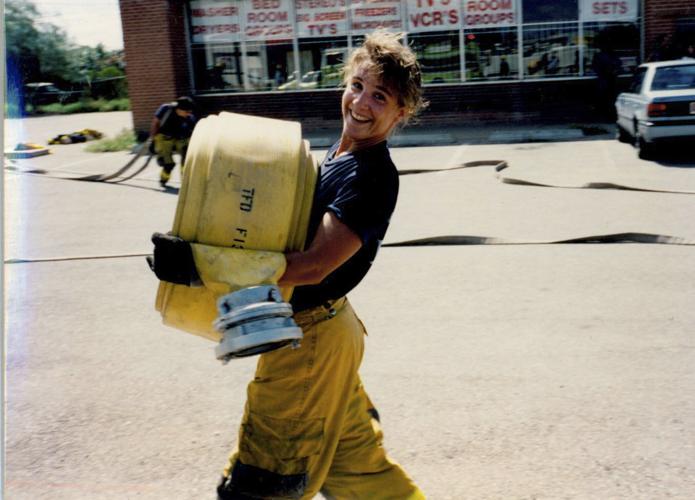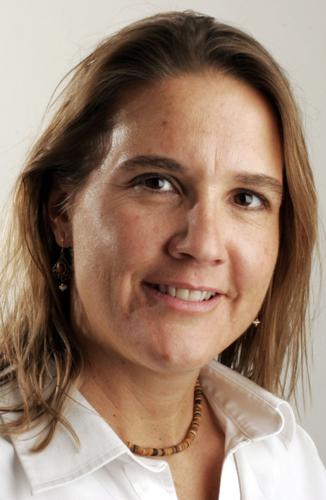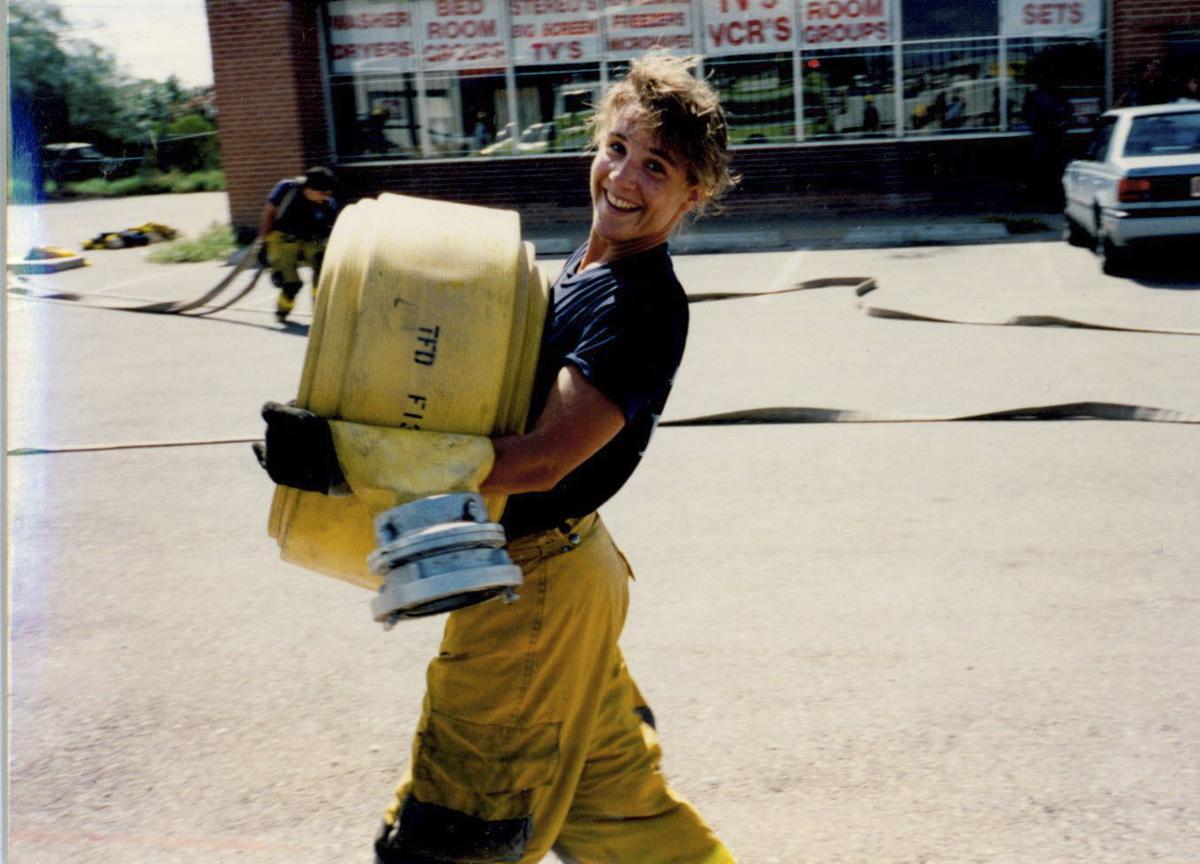She never meant to make a statement about women’s rights.
She definitely didn’t intend for her career as a firefighter to end with a small victory in a Ninth Circuit Court of Appeals ruling.
But after 21 years with the Tucson Fire Department, one of Tucson’s first female firefighters fought for 10 years — and won — a sexual harassment case involving inappropriate signs posted on her bathroom door and on her truck at a fire station.
“What I really want to come out of this is for people to know the city doesn’t do anything to stop these behaviors, and it’s costing taxpayers,” Michelle Maliniak said.
She won $35,000 and $200,000 in attorneys’ fees for her case in the ruling. The city also paid a contractor, Mesch, Clark & Rothschild, for legal representation.
The city has also paid $125,000 and $60,000 settlements in recent years for cases related to Fire Department employee misbehavior and assaults.
City Attorney Mike Rankin said the Maliniak case was fascinating but had a disappointing result.
She prevailed on a split decision in the Ninth Circuit and the city opted to resolve the case by negotiating the attorneys’ fees and cutting a check instead of taking the case to the Supreme Court, he said.
Rankin said the city takes employee complaints seriously and the fire chief immediately addresses them.
‘I love to help people’
When Maliniak was applying for jobs fresh out of college, firefighting was a career for men only.
“I was so clueless,” she said in a recent interview about the April court ruling.
“You know, I didn’t go into this thinking I’m going to be an activist for women’s rights. I just wanted a good job that I’d enjoy.”
Her graduation from the University of Arizona was coming up. She would hold a degree in psychology and she was looking for a good place to work.
“I saw a poster and I thought, ‘This is perfect for me.’ Because I love to work hard, I love to be physical, I love to learn, I love to help people,” she said. “I wanted to be of service.”
She tried out for a job in Tucson but didn’t make it. Instead, she was hired as the first female firefighter in Sierra Vista. It was 1989.
“Right off the bat, I was greeted with some hostility,” Maliniak said. “I went out to my car after the first day and in the dust on my window there was a woman symbol with a circle and a slash through it.”
“And I just thought, ‘Well, if I work hard enough and show ’em I can do it, then it shouldn’t be a problem.’ But that’s just not the case. You can be exemplary at the job and you’re still not considered worthy of it.”
She was hired by the Tucson Fire Department in 1990.
The department was hiring women following a class-action lawsuit settlement. In the agreement, the city said it would try to ensure that 7 percent of its personnel were women, take special steps to recruit women and require the staff to take sensitivity training. Today, about 5 percent of firefighters are women.
When Maliniak came on board, “they told us we were going to have to work twice as hard as the men to prove to them that we could do the job, and I was fine with that,” Maliniak said.
Always proving herself
She loved the work. As an engineer, a medic and a hazardous materials technician, she found the work exciting and rewarding.
But for the first 10 years, the department didn’t have separate bathrooms for women in fire stations where no women had worked before. She was walked in on numerous times, and men used the women’s bathroom after one was provided, leaving it dirty.
So-called pranks, which had no business in a professional workplace to begin with, Maliniak said, felt increasingly threatening. A “no men” sign on the bathroom door was changed to say “no men for me.”
Fire officials said they addressed the problems at the time through memos and investigated the behavior.
In 2005, after finding a sign on a truck that said “Fu@# You Use Reverse B!*tch,” she filed sexual discrimination charges with the Equal Employment Opportunity Commission regarding both signs.
The case was assigned to Judge John Roll, who wanted a trial by jury.
After Roll was murdered in the 2011 mass shooting in Tucson, Judge A. Wallace Tashima took over and overturned a jury’s decision on the harassment issue.
Maliniak lost a claim about retaliation.
She appealed the harassment decision to the Ninth Circuit Court in 2012 and won in a 2-1 decision this year. The Ninth Circuit reversed Tashima’s decision and reinstated the jury’s verdict.
Part of what she won was $35,000 in salary she didn’t receive while she stayed away from work for eight months on an unpaid leave, and she used other money from the award to pay back her own retirement account, which she borrowed from to pay attorneys’ fees. It was what the jury originally awarded her.
During arguments, Judge Marsha Berzon said she could see a progression in the harassment, from the bathroom incidents to gender-derogatory signs.
In the ruling, Berzon and Judge Richard Paez wrote, “it was reasonable for the jury to conclude that the truck sign incident was related to the earlier bathroom incidents because both involved written signs that were denigrating to women, and the supervisors and firefighters who allowed the sign to remain on the truck knew of the offensive bathroom sign.”
In his dissent, appeals court Judge Michael Daly Hawkins said the signs weren’t enough to constitute harassment. “Considering all of the relevant factors,” he wrote, “the posted signs were not very severe, the identity of those involved were different, the signs were posted in different locations and were separated temporally, and the conduct was not physically intimidating.”
These days Maliniak is a licensed professional counselor who runs a private practice offering cognitive behavioral therapy and help with PTSD.
“I’m not a miserable, angry person. I’m having a joyous life,” she said. “I didn’t let this interrupt my joy for very long.”
Still, she says, the odds are stacked against women in the firefighting profession.
She’s stopped encouraging girls to grow up to become firefighters.







